Supporting local beekeepers and bee conservation.
As many know, bees and pollinators play a significant role within our ecosystem. In May, we contacted one of our well-known (and loved) local beekeepers to see if they were interested in hive sponsorship.
16 August, 2022
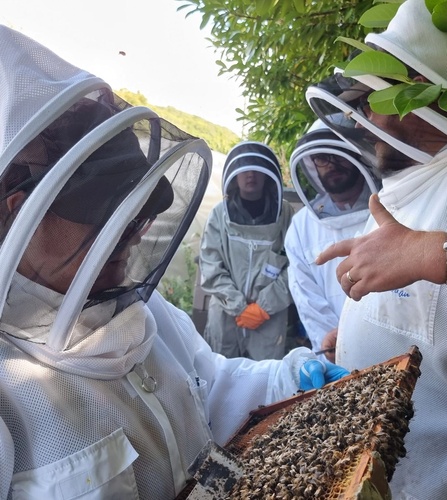
We had a great discussion with Chris and Kate about what they do, how they started and the importance of bees. They were both exceptionally knowledgeable with many years of experience under their belts. We discussed climate change and its impact on bees and the honey they produce. Some years have been difficult, especially the wet summers, but the bees have been thriving with the heat waves this year.
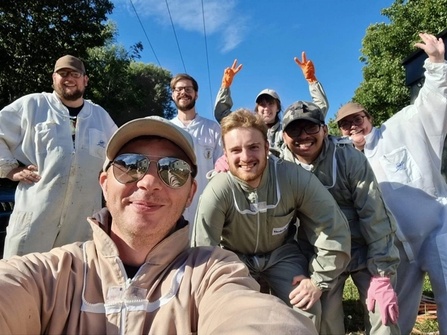
For many beekeepers who rely on honey production as their income, it's hard to know how much the bees will produce as it depends on weather conditions which affect trees/plants blooming. Hive sponsorship was a great way to support beekeepers whilst production may be up/down and it is also great to know that the 100 hives (and counting) that Chris and Kate manage are well cared for.
We believe in compassionate beekeeping and low-impact honey farming techniques. We use traditional methods alongside modern equipment to keep our bees happy, healthy and productive.
- Bunburybees
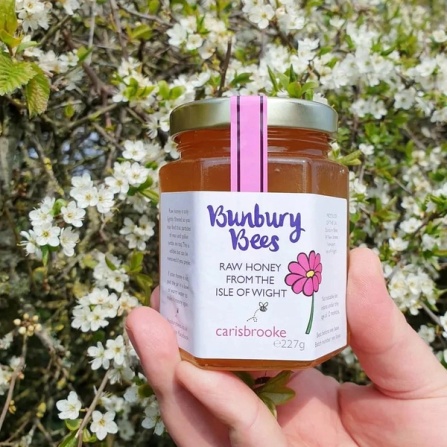
We successfully sponsored one of their bee hives, we had the opportunity to visit the hive during our beekeeping experience. Kate organized a beautiful plaque to be made and placed on our hive, we couldn't leave without a team photo.
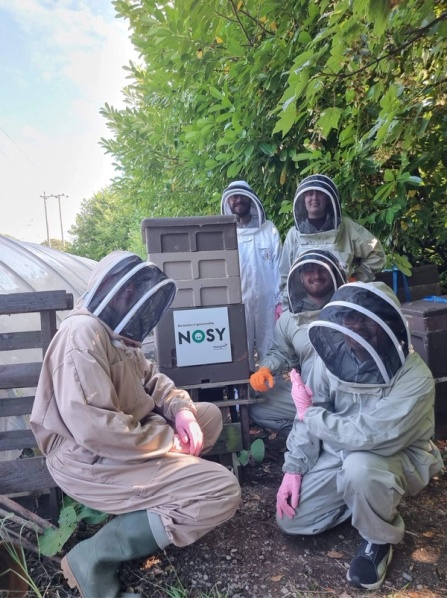
The overall experience was great, having learned so much about bees and enjoyed hands-on experience with handling the hive equipment. Bees and pollinators need protection, the use of pesticides/chemicals, lack of food and global warming have caused a rapid decline in pollinator numbers.
- Almost 90% of wild plants and 75% of leading global crops depend on animal pollination.
- One out of every three mouthfuls of our food depends on pollinators.
- If bees disappeared, so would our food, wildlife and ecosystem.
It’s important to note that honey bees are cared for by beekeepers, though they play a vital role in pollinating plants, we need to protect those that are not cared for, mainly solitary bees and hoverflies. The best way to protect these important species is to plant wildflowers, install bug boxes and avoid using chemicals in the garden. For more information visit the Wildlife Trust website.
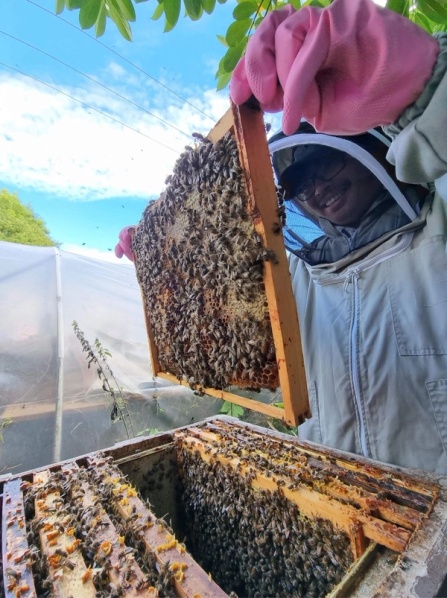
We recommend other businesses sponsor a hive with Bunbury bees, you can find out more via their website.
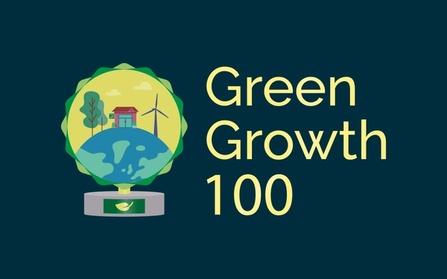
NOSY named in the UK's Green Growth 100
NOSY has been recognised as one of the UK's small businesses leading the way in sustainability-led growth.
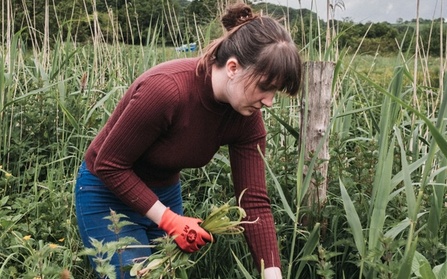
Prosperity over profit
We live in a world where 'growth at all costs' doesn't align with a sustainable future. Instead, we look at the impact we have on the prosperity of people as a key benchmark of our success.

Building brands with clarity and purpose
Over nearly 20 years, Scott Bennett has helped shape brands that stand for something. As NOSY’s Creative Director, he shares how strong brands are built.
Let's work together
Telephone
+44 (0)1983 632997Office
Top Floor, 8 Gray's Walk, Newport, England, PO30 1TD